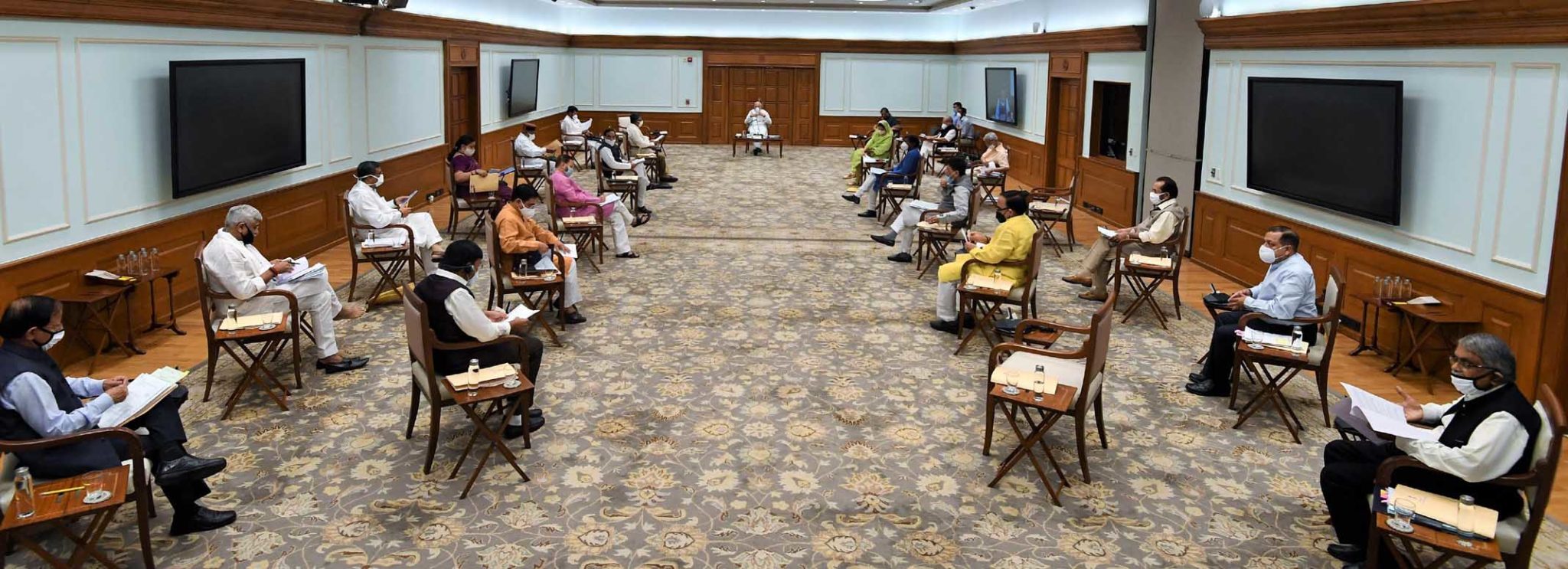The Union Cabinet chaired by Prime Minister Narendra Modi met on Wednesday, in which several landmark and historic decisions aimed at transforming the agriculture sector were taken.
The Cabinet approved three Ordinances aimed at constructive disruption of the existing agricultural situation. First of this was the historic amendment to the Essential Commodities Act. This means commodities like cereals, pulses, oilseeds, edible oils, onion and potatoes will be removed from the list of essential commodities.
This will remove fears of private investors of excessive regulatory interference in their business operations.
The freedom to produce, hold, move, distribute and supply will lead to harnessing economies of scale and attract private sector/foreign direct investment into the agriculture sector. It will help drive up investment in cold storages and modernization of the food supply chain.
Experts see this as a visionary step towards transformation of agriculture and raising farmers’ income. While India has become surplus in most agri-commodities, farmers have been unable to get better prices due to lack of investment in cold storage, warehouses, processing and export as the entrepreneurial spirit gets dampened due to the hanging sword of Essential Commodities Act.
Farmers suffer huge losses when there are bumper harvests, especially of perishable commodities. With adequate processing facilities, much of this wastage can be reduced.
The Government, while liberalizing the regulatory environment, has also ensured that interests of consumers are safeguarded. It has been provided in the Amendment, that in situations such as war, famine, extraordinary price rise and natural calamity, such agricultural foodstuff can be regulated.
However, the installed capacity of a value chain participant and the export demand of an exporter will remain exempted from such stock limit imposition so as to ensure that investments in agriculture are not discouraged.
The amendment announced will help both farmers and consumers while bringing in price stability. It will create a competitive market environment and also prevent wastage of agri-produce that happens due to lack of storage facilities.
Cabinet also approved ‘The Farming Produce Trade and Commerce (Promotion and Facilitation) Ordinance, 2020’. The Ordinance will create an ecosystem where the farmers and traders will enjoy freedom of choice of sale and purchase of agri-produce.
It will promote barrier-free inter-state and intra-state trade and commerce outside the physical premises of markets notified under State Agricultural Produce Marketing legislations. This is a historic-step in unlocking the vastly regulated agricultural markets in the country.
It bears recall that farmers suffered from various restrictions in marketing their produce such as they could not sell their produce outside the notified APMC market yards. They had also the compulsion of selling the produce only to registered licensees of the State Governments.
The farmers will not be charged any cess or levy for sale of their produce under this Act. Further there will be a separate dispute resolution mechanism for the farmers.
The ordinance basically aims at creating additional trading opportunities outside the APMC market yards to help farmers get remunerative prices due to additional competition. This will supplement the existing MSP procurement system which is providing stable income to farmers and will pave the way for creating One India, One Agriculture Market.
Thirdly, the Cabinet approved ‘The Farmers (Empowerment and Protection) Agreement on Price Assurance and Farm Services Ordinance, 2020’. The ordinance will empower farmers for engaging with processors, wholesalers, aggregators, wholesalers, large retailers, exporters etc., on a level playing field without any fear of exploitation.
It will enable farmers to access modern technology and better inputs. It will reduce the cost of marketing and improve income of farmers. This Ordinance will act as a catalyst to attract private sector investment for building supply chains for supply of Indian farm produce to global markets.













































